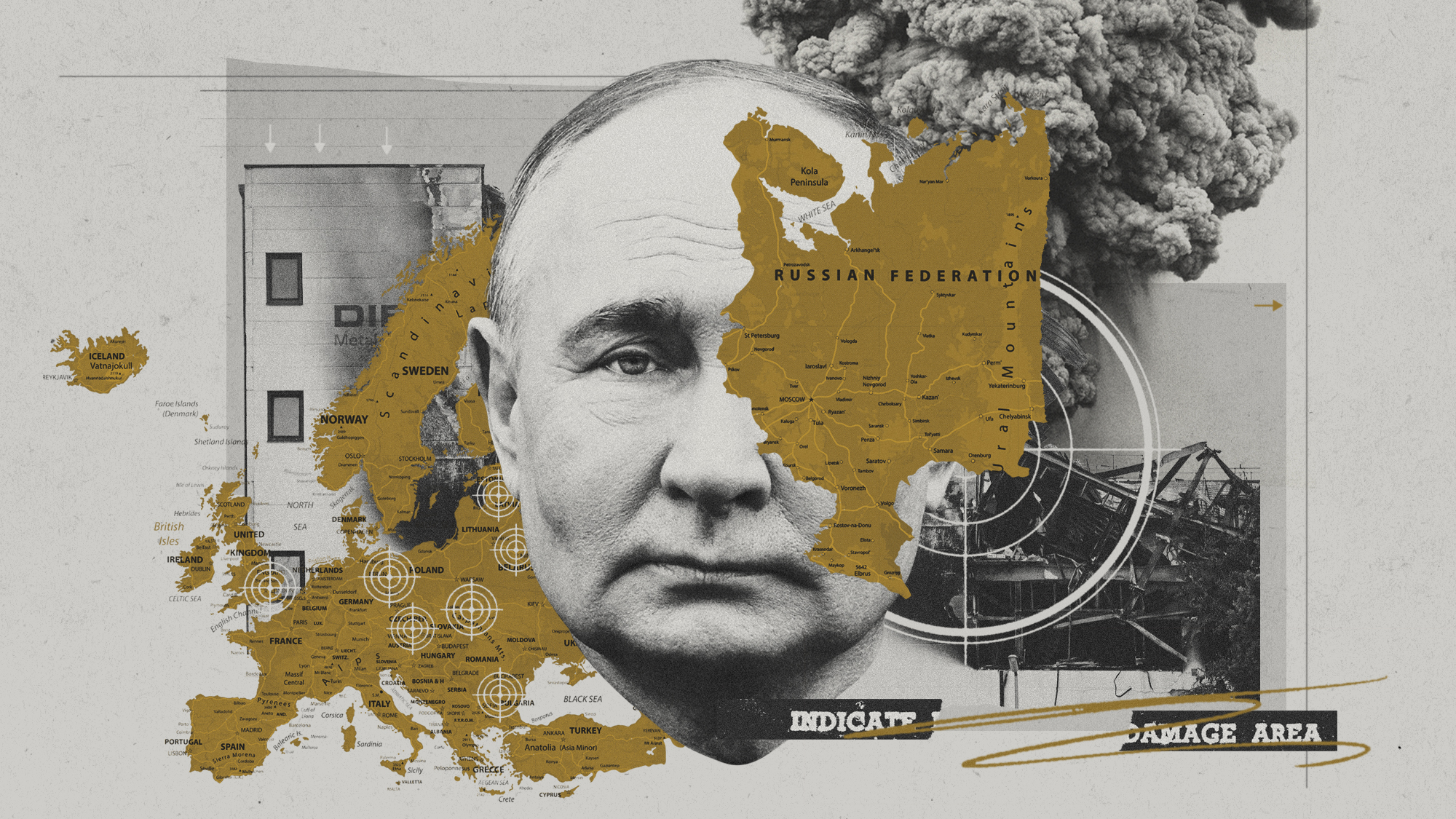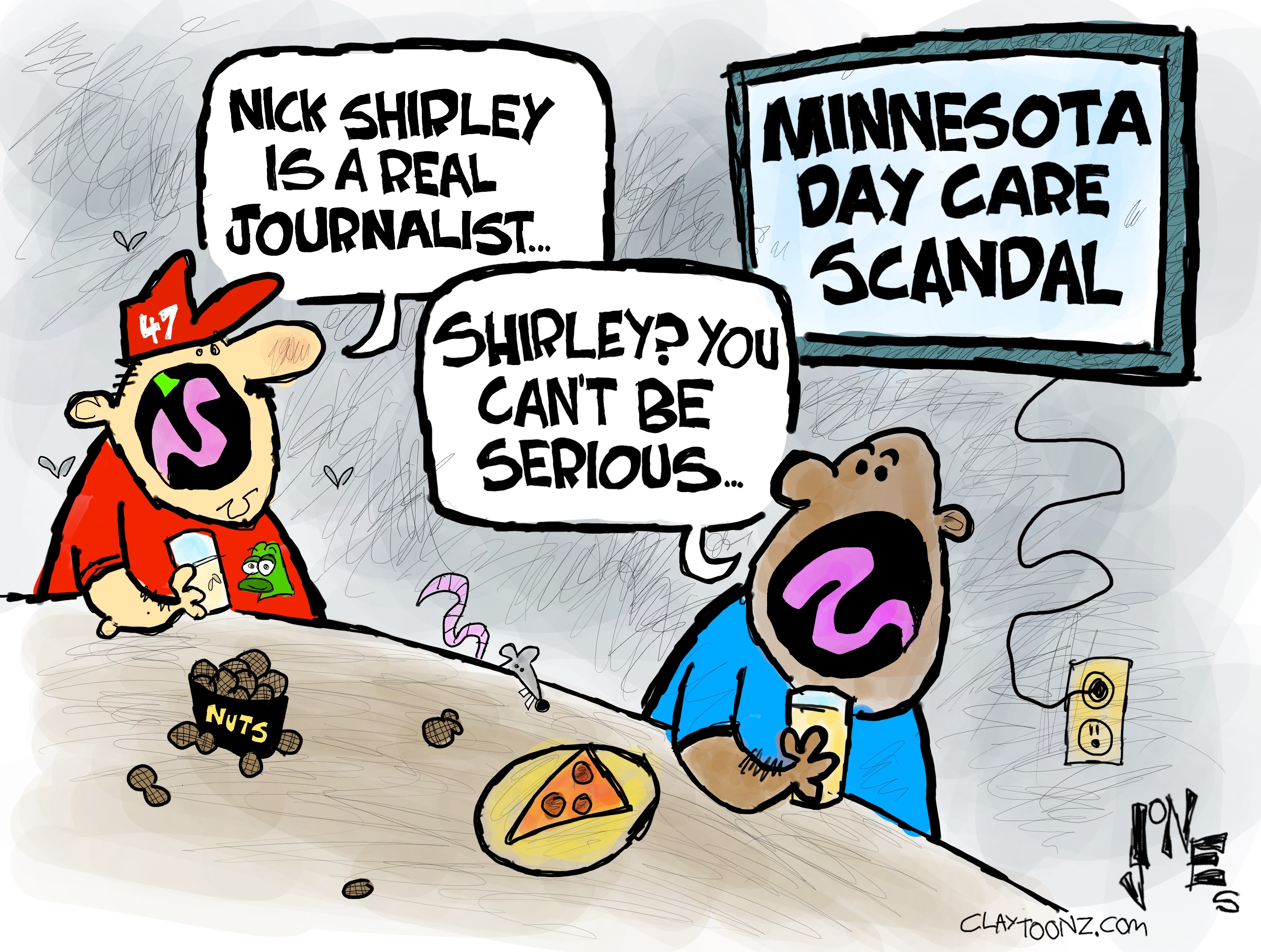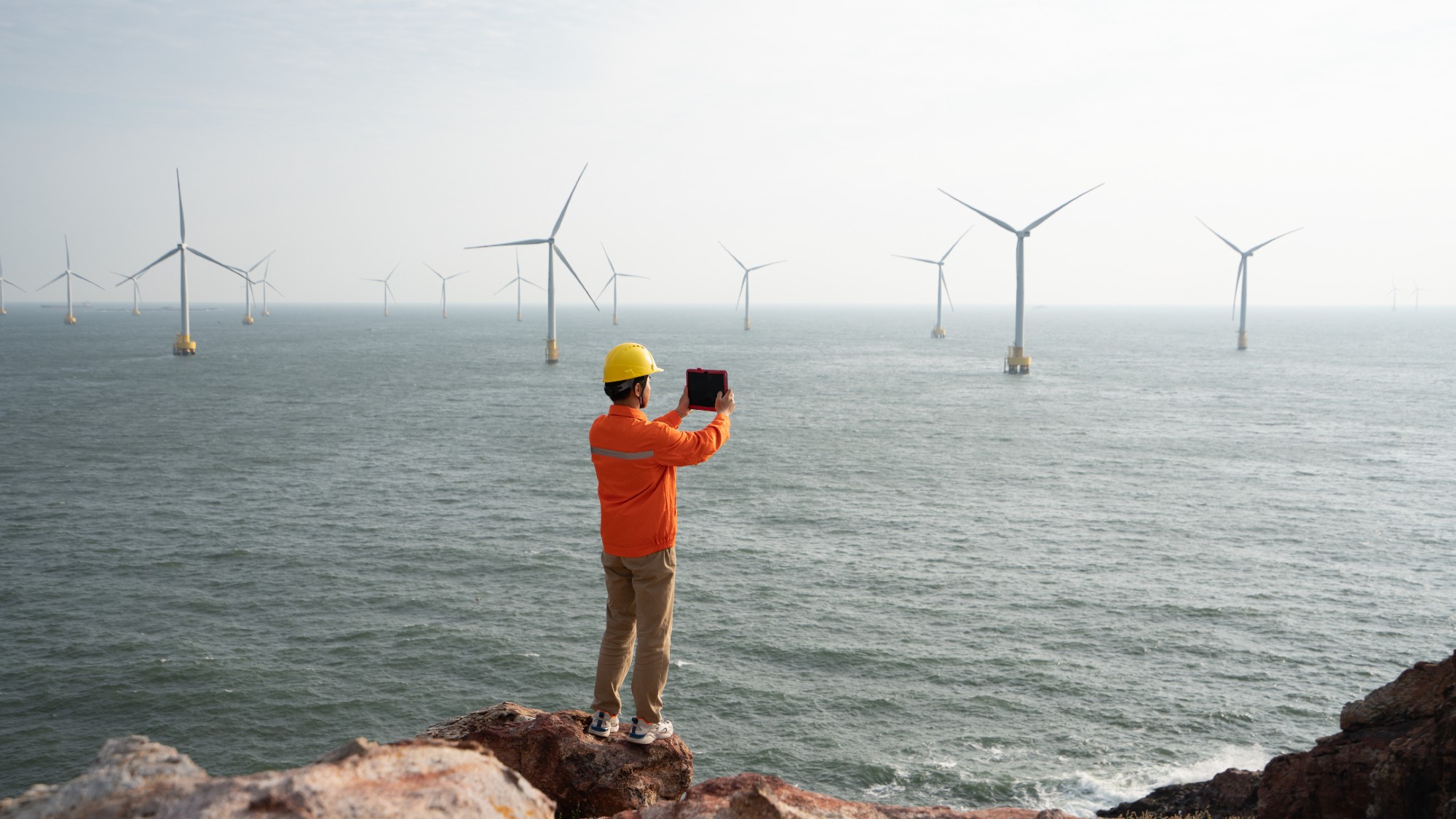Is Russia waging a 'hybrid war' against the West?
Attacks across Europe are raising fears


A warehouse fire in London. A defector shot dead in Spain. A factory fire in Berlin. Alleged bomb plotters arrested in France and Germany. A new wave of terrorism? Not exactly. Instead, these "seemingly random attacks" are part of Russia's "hybrid war on the West," said CNN. That war is an outgrowth of Russia's invasion of Ukraine, aimed at sabotaging Kyiv's European allies. The goal is to "weaken Western resolve to support Ukraine and undermine unity within the West," said one expert.
That's creating a "major challenge for the U.S. and NATO," said The Hill. The attacks cannot be ignored. The trick now is to figure out how to respond "without sparking a major conflict with Russian President Vladimir Putin." There are no guidelines for how to respond to such "gray zone" attacks that fall short of a full-blown war, which is why European officials are treading cautiously. "Russia is throwing at us all the time new challenges, new risks," said one ambassador, and the "hybrid [war] has turned to be one of the serious ones for the alliance."
What did the commentators say?
"Russia is punching back at NATO in the shadows," David Ignatius said at The Washington Post. U.S. intelligence agencies are providing information to European counterparts to "disrupt the saboteurs," which have been "mostly linked to European logistical support for Ukraine." Norwegian officials, for example, recently issued a warning that attacks could target companies that deliver arms to Ukraine's defenders. That escalation makes the war even more dangerous for the world. "The danger of a misstep gets worse."
The Week
Escape your echo chamber. Get the facts behind the news, plus analysis from multiple perspectives.

Sign up for The Week's Free Newsletters
From our morning news briefing to a weekly Good News Newsletter, get the best of The Week delivered directly to your inbox.
From our morning news briefing to a weekly Good News Newsletter, get the best of The Week delivered directly to your inbox.
The sabotage "is designed to fray Europe's nerves and instill caution through fear," said The Economist. But it's not new. Russia has a long history — going back well before the Ukraine invasion — of supporting violent attacks that don't quite approach the threshold of war: In 2011, for example, Russian intelligence units were linked to an arms depot explosion in Bulgaria. The latest wave of attacks is a sign of Vladimir Putin's desire to "put pressure on the West to restrain Ukraine and limit its own involvement in the war." So far, though, Ukraine's support is holding steady. "The strategy has not worked."
What next?
Western officials are still trying to formulate a response, said Financial Times. One possibility: A "tit for tat" information campaign that "rams home" the costs of the Russo-Ukrainian war to ordinary Russians. "If you are an average Russian, not a day should go by when you are not reminded of the huge number of casualties that Russian troops have suffered," said Eliot Cohen, a former State Department adviser. More broadly, the goal is to create a deterrence strategy that doesn't tip over into the kinds of "unethical or illegal means" being used by Putin's agents.
In the meantime, U.S. officials have raised the alert at American military bases over "vague threats" from Russia about Ukraine's use of long-range weapons, The New York Times said. Any attack on U.S. bases or personnel "would be a significant escalation of its war in Ukraine." The new alert is designed to make sure service members are being cautious. The goal? "Remain vigilant and stay alert at all times."
A free daily email with the biggest news stories of the day – and the best features from TheWeek.com
Joel Mathis is a writer with 30 years of newspaper and online journalism experience. His work also regularly appears in National Geographic and The Kansas City Star. His awards include best online commentary at the Online News Association and (twice) at the City and Regional Magazine Association.
-
 The ultimate films of 2025 by genre
The ultimate films of 2025 by genreThe Week Recommends From comedies to thrillers, documentaries to animations, 2025 featured some unforgettable film moments
-
 Political cartoons for January 3
Political cartoons for January 3Cartoons Saturday's political cartoons include citizen journalists, self-reflective AI, and Donald Trump's transparency
-
 Into the Woods: a ‘hypnotic’ production
Into the Woods: a ‘hypnotic’ productionThe Week Recommends Jordan Fein’s revival of the much-loved Stephen Sondheim musical is ‘sharp, propulsive and often very funny’
-
 Trump considers giving Ukraine a security guarantee
Trump considers giving Ukraine a security guaranteeTalking Points Zelenskyy says it is a requirement for peace. Will Putin go along?
-
 Vance’s ‘next move will reveal whether the conservative movement can move past Trump’
Vance’s ‘next move will reveal whether the conservative movement can move past Trump’Instant Opinion Opinion, comment and editorials of the day
-
 What have Trump’s Mar-a-Lago summits achieved?
What have Trump’s Mar-a-Lago summits achieved?Today’s big question Zelenskyy and Netanyahu meet the president in his Palm Beach ‘Winter White House’
-
 Biggest political break-ups and make-ups of 2025
Biggest political break-ups and make-ups of 2025The Explainer From Trump and Musk to the UK and the EU, Christmas wouldn’t be Christmas without a round-up of the year’s relationship drama
-
 Why is Trump killing off clean energy?
Why is Trump killing off clean energy?Today's Big Question The president halts offshore wind farm construction
-
 Danes ‘outraged’ at revived Trump Greenland push
Danes ‘outraged’ at revived Trump Greenland pushSpeed Read
-
 Why does Trump want to reclassify marijuana?
Why does Trump want to reclassify marijuana?Today's Big Question Nearly two-thirds of Americans want legalization
-
 Who is paying for Europe’s €90bn Ukraine loan?
Who is paying for Europe’s €90bn Ukraine loan?Today’s Big Question Kyiv secures crucial funding but the EU ‘blinked’ at the chance to strike a bold blow against Russia
